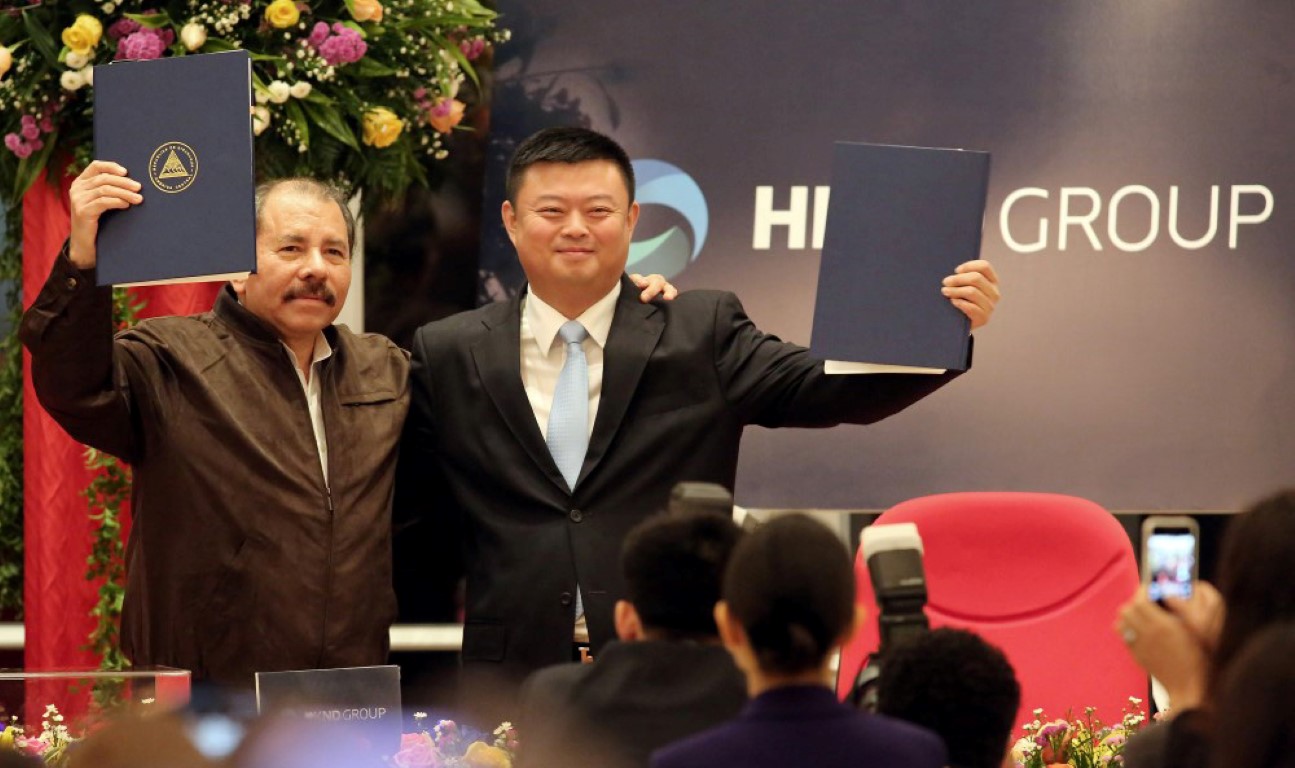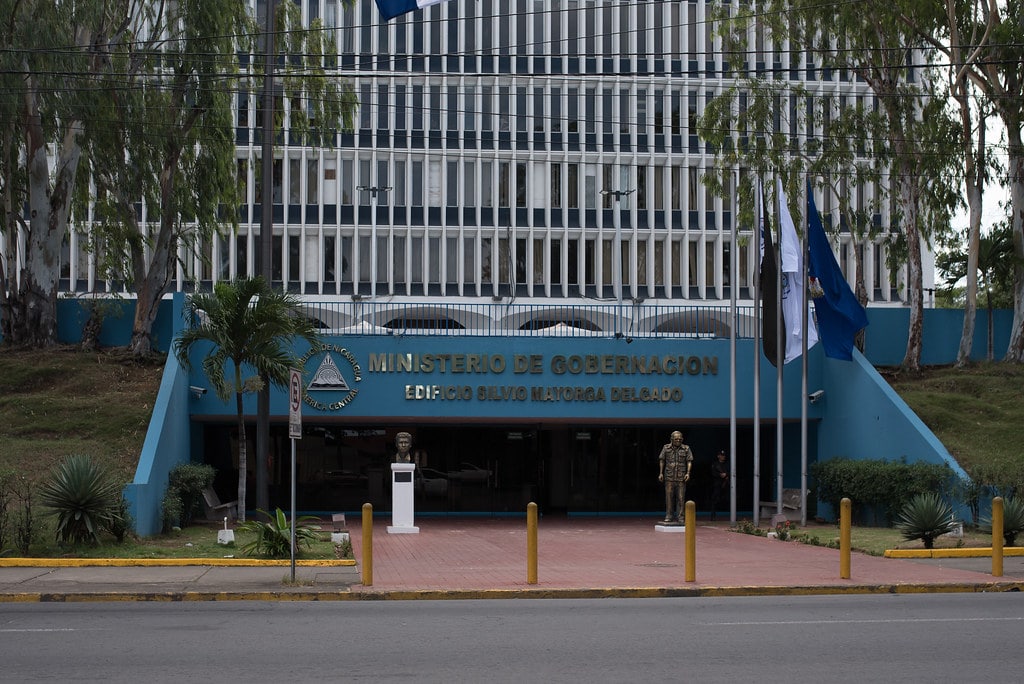28 de diciembre 2021

Nicaragua: Interoceanic Canal Project a “Huge Failure”

PUBLICIDAD 1M
PUBLICIDAD 4D
PUBLICIDAD 5D
US actor Michael Foster, Dutch communicator Dick Bol and Basque feminist-economist Clara Murguialday tell how they support Nicaraguans

US actor Michael Foster
Since the rebellion of April 2018, the repression of the Daniel Ortega regime has generated a wave of international solidarity with Nicaraguans. Human rights organizations and democratic governments have spoken out in defense of the Nicaraguan people. But permanent solidarity rests, above all, in the networks of people in North America, Europe and Latin America.
US actor Michael Wayne Foster, Basque feminist economist Clara Murguialday, and the retired Dutch communicator Dick Bol, are three persons active in supporting Nicaraguans to weather the evils of the dictatorship.
The Bond
“The most beautiful thing that happened to me in my life, the most interesting experience that I have lived -and I thank the goddesses for having been able to be there-, are all the years that I lived in Nicaragua and all my relationships with women and with the people of Nicaragua in general,” says Clara Murguialday about her bond with Nicaragua.
Murguialday and Bol have strong ties to the country dating back to 1980s, during the Sandinista Revolution.
“I travelled to Nicaragua in the early 1980s with a backpack and a guitar, excited by the triumph of the Sandinista Popular Revolution. My intention was to stay a couple of years, finally I stayed for 20 years in those (Central American) lands, 12 of which I lived in Nicaragua, practically until 1992, when I went to live in El Salvador,” says the economist and feminist.
Bol arrived a little later than Murguialday, although with the same desire to collaborate and be a part of the revolutionary process.
“I was in Nicaragua for the first time in 1984, to see how the revolution worked and how the solidarity campaigns were working and how the campaigns make changes. I was impressed by the people and their openness. And, two years later, with other people, I organized the solidarity committee in Harlem,” Holland, recalls Bol.
“We organized eight or ten solidarity brigades, construction brigades, we did it with our hands. We supported all kinds of activities, community housing, many times. On Ometepe Island we built a new village in a risk-free place and communal houses, and we created environmental programs, of tourism, that kind of things…and even today we exist and are active in actions of the SDGs (Sustainable Development Goals) and climate change,” details Bol.
The dreams of revolution of these veteran friends of Nicaragua were dissolved before the autocracy of Daniel Ortega and his return to power to establish a new dictatorship. “Daniel Ortega and Rosario Murillo have betrayed the fundamental principles of the values of that revolution and that Sandinista Front, and they strive to, day by day, to lead Nicaragua towards an abyss, towards economic destruction,” assures Murguialday.

US actor Michael Wayne Foster got to know Nicaragua in depth thanks to his wife Karina Foster. Photo: Courtesy.
Actor Michael Wayne Foster, known for his role as “Red Machete” in The Walking Dead series, learned about Nicaragua from his wife, Karina Foster.
Karina is a Nicaraguan who came to the United States in 1979 fleeing, along with her family, from the instability and violence of that time, between the end of the Somoza dictatorship and the Sandinista seizure of power. She was only one year old.
“My ties to Nicaragua come from my wife. She and her family are from Nicaragua, they are from Managua. I did not know anything about Nicaragua. I knew it was in Central America, but that was it. Then I met her and learned a lot. Her father was a doctor in Nicaragua and her mother a nurse, and they had to flee with the revolution, with the Sandinistas,” says Foster in English, although he always dares to say some words in Spanish.
“I see that a lot of these communist and socialist dictators, they are bullies, and I don’t like bullies. So, I will always support people who defend freedom and democracy, assures Foster.
In 2018, Foster popularized the hashtag #SOSNicaragua among US citizens, thanks to photos and videos that he shared, along with the tag, on his social networks to alert and denounce the repression in Nicaragua. His messages were replicated by thousands among his followers.
“I always considered that my job was to inform people about what is happening there. My idea was to come out with SOS Nicaragua, and I did it with a T-shirt. So, we had a couple of different T-shirts and we sold them. It started with us making videos and then after the videos we decided to sell the T-shirts to make some money and we wanted to give that money to a charitable organization. So, we gave it to Al-Barro (foundation) and, you know, after a year or two, we stayed with them. We also donate and give our time,” Foster commented.
Clara Murguialday is a defender of Nicaraguans human rights and focuses her support on the feminist struggle.
“Basically, my relationship has always been one of collaboration, also of training, of support, of accompaniment to women’s groups and feminist groups, in what they request of me and in what I can do well. Organized women, feminists know that they can count on me for solidarity tasks, for support, for accompaniment, to accompany them in denouncing what is happening in Nicaragua: of human rights violations, of the antifeminist policies that are being implemented, and that make the rights conquered by women in Nicaragua backslide each year more and more,” says Murguialday.

Foto: Confidencial | Archivo
With the closure of more than 50 NGOs and the persecution of any citizen who expresses an opinion contrary to that of the regime, helping Nicaraguans has become a difficult task.
“I think that it is difficult now and if you help people in Nicaragua, you also put them in danger. It cannot be done openly. We cannot say we are in solidarity. If you are not in solidarity with Mr. Ortega, then you are an enemy of Mr. Ortega,” says Dick Bol.
“We are told that the doors, windows are closed, the paths to help are closed, that the repression is tougher every day. That they do not even allow them to breath,” assures Murguialday.
“I have a good number of friends in exile, imprisoned, persecuted, in hiding. Every day is more difficult to establish contact with them, to contact them safely without putting them in danger, to send financial support so that they can survive the loss of employment, the closure of NGOs, the raids on their workplaces,” adds Murguialday.
“I have spoken with other journalists like you before, in Nicaragua. And I know it is very difficult for you to pass the message across without worrying about being censured or arrested. And God forbit, that they kill you. So, it is very difficult to do something,” exemplifies Foster.
In addition to the barriers imposed by the regime on humanitarian aid, Foster reduced his support for some Nicaraguans, due to political differences.
“I was hurt by some Nicaraguans, and I distanced myself from them on social networks, because I realized that some of the Nicaraguans I was trying to help were openly supporting socialist candidates in the United States. And when I saw that, it was like “let me understand this correctly: you are leaving a brutal, socialist dictatorship to come to my country that I love. I married an immigrant. I love immigrants. But you are going to come to my country and then vote for people who have the same mentality as the person and the dictatorship from which you are fleeing. We are not friends,” added the actor.
Although the outlook for Nicaragua is uncertain and the dictatorship of Daniel Ortega seems consolidated, foreigners Foster, Murguialday and Bol remain hopeful that the Nicaraguan crisis will have a good outcome.
“I believe that Nicaragua has to change. And the only people who can change Nicaragua are Nicaraguans and the only thing (we) can do is support them in that process,” commented Bol.
“I hope that sooner rather than later, Daniel Ortega and Rosario Murillo will leave. I don’t know how that can be done. I don’t know, I really don’t know. But I hope that the united opposition, the democratic opposition, together with the ‘blue and white’ social forces in Nicaragua, will find a way to remove Daniel Ortega and Rosario Murillo and the entire clique that support them. Then initiate a transition towards the restoration of democracy, recovery of institutions, reparation, justice and truth for all crimes against humanity that have been committed since 2018,” expressed Murguialday.
“I want Nicaraguans to be free, to be able to prosper in their own country,” are Michael Foster’s wishes.
This article was originally published in Spanish in Confidencial and translated by Havana Times
Archivado como:
PUBLICIDAD 3M
Confidencial es un diario digital nicaragüense, de formato multimedia, fundado por Carlos F. Chamorro en junio de 1996. Inició como un semanario impreso y hoy es un medio de referencia regional con información, análisis, entrevistas, perfiles, reportajes e investigaciones sobre Nicaragua, informando desde el exilio por la persecución política de la dictadura de Daniel Ortega y Rosario Murillo.
PUBLICIDAD 3D